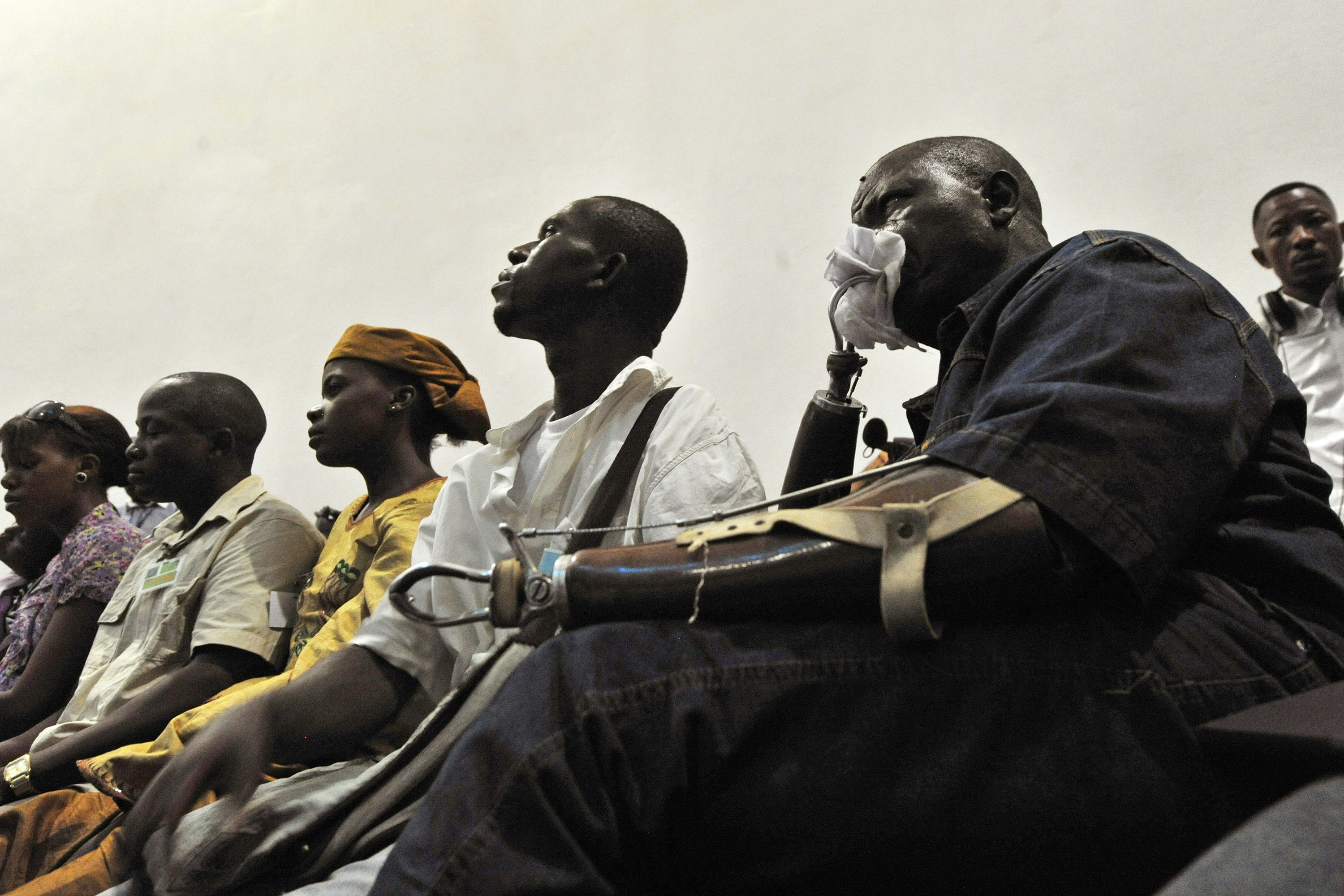Citizens Against Violence and Others v. the Attorney General of Kenya and Others
Victims of Police Shootings Demand Accountability
More than 400 Kenyans were shot dead by police during the post-election violence that brought chaos to many towns in Kenya in early 2008. Despite the willingness of the victims to press charges, no police have been prosecuted for carrying out the shootings or for failing to prevent them. A group of Kenyan civil society organizations and victims of police shootings have brought a class action constitutional case to the High Court of Kenya at Kisumu against four Kenyan government officials demanding accountability for the unlawful killings and maimings, seeking a judgment ordering the government to investigate and prosecute the perpetrators, and to provide reparations to the survivors and families of the deceased.
Facts
Kenya’s national elections on December 27, 2007, were marked by significant ethnic violence. Immediately following the announcement of election results on December 30 large areas of the country erupted into violence. Violence continued from late December 2007 until March 2008, and eventually affected up to 136 constituencies in six of Kenya’s eight provinces.
The response of the police was brutal, often indiscriminate, and frequently lethal. According to government reports, at least 1,100 people were killed during the post-election violence, of which at least 405 died as a direct result of police shootings. At least 962 additional victims were maimed but not killed when they were shot by the police.
Despite sustained domestic and international pressure for prosecution of the material and intellectual perpetrators crimes allegedly committed by police during the post-election violence, the Government of Kenya has not carried out independent and effective investigations nor convicted any police officials of post-election violence crimes.
Four Kenyans faced trial at the International Criminal Court (ICC) in the Hague for orchestrating crimes against humanity committed during the post-election violence (see the Open Society Justice Initiative's International Justice Monitor website for further details). The charges at the ICC did not include crimes alleged to have been committed by police, despite the high number of killings and maimings as a result of police violence. Almost no police have been prosecuted in domestic courts for their roles in widespread violence.
With the support of Citizens Against Violence and the Independent Medico-Legal Unit, the families of police shooting victims and surviving victims claim that the failure to train police in lawful methods of conducting law enforcement operations, failures in the planning and preparation of police operations during the post-election violence, unlawful orders, and the failure to respond to allegations of unlawful conduct by the police caused the deaths and serious injuries of the victims.
The claimants further allege that the unlawful and fatal shootings by the police have not been investigated at all or that any investigations have not been genuine, independent, or effective.
The victims ask the Court to order the government to establish an internationalized, independent body for the investigation and prosecution of the crimes, which they contend amount to crimes against humanity.
Open Society Justice Initiative Involvement
The Justice Initiative is acting as advisors to the Kenyan lawyers.
Arguments
The right to life, prohibition against torture, and right to security of the person. The Kenyan authorities failed to train police in lawful methods of conducting law enforcement operations during political demonstrations and civil unrest, failed to plan and prepare those operations, or to ensure that such operations were conducted lawfully, failed to issue lawful orders on the use of force, and failed to adequately supervise the police, in violation of the Constitution and several sources of binding international law.
Failure to investigate and prosecute. By failing to conduct prompt, independent, and effective investigations into police shootings, Kenya violated its duty to investigate violations of the fundamental rights of the victims as protected by the Constitution and international law.
The right to effective remedies. For five years the Kenyan government has denied justice, compensation, and rehabilitation to the victims of police shootings during the post-election violence. Kenya must provide compensation for general damages, medical and psychosocial care, social services, provide access to the relevant information concerning the violations and reparations mechanisms, and issue a public apology that acknowledges the facts of police shootings during post-election violence and accepts responsibility on behalf of the Government of Kenya for the suffering of the victims.
Hearings on the merits are scheduled to begin.
The petition is amended and refiled in High Court of Kenya at Kisumu against the Attorney General of Kenya, the Director of Public Prosecutions, the Independent Police Oversight Authority, and the Inspector-General of the Kenya National Police Service seeking a court judgment ordering the government to conduct genuine and effective investigations and prosecutions of police perpetrators, and to provide effective reparations.
Four Kenyan NGOs and 15 victims of police shootings file a case in the Nairobi High Court against six Kenyan government officials for failing to investigate and prosecute the perpetrators of police shootings.
Charges against four Kenyan officials for crimes against humanity are confirmed at the ICC.
The International Criminal Court finds a reasonable basis to investigate Kenya’s post-election violence as crimes against humanity.
The Kenyan parliament votes against the establishment of the proposed tribunal made up of Kenyan and international judges to address the post-election violence.
The Commission of Inquiry on Post Election Violence, aka the “Waki Commission” issued its report detailing at least 405 deaths and 962 maimings caused by police shootings, and calling for a special tribunal to prosecute the perpetrators.
Rival candidates, Kibaki and Odinga, signed power-sharing agreement creating a coalition government.
Demonstrations and violence break out immediately after contested elections results are announced.
Kenyans vote in national elections.
